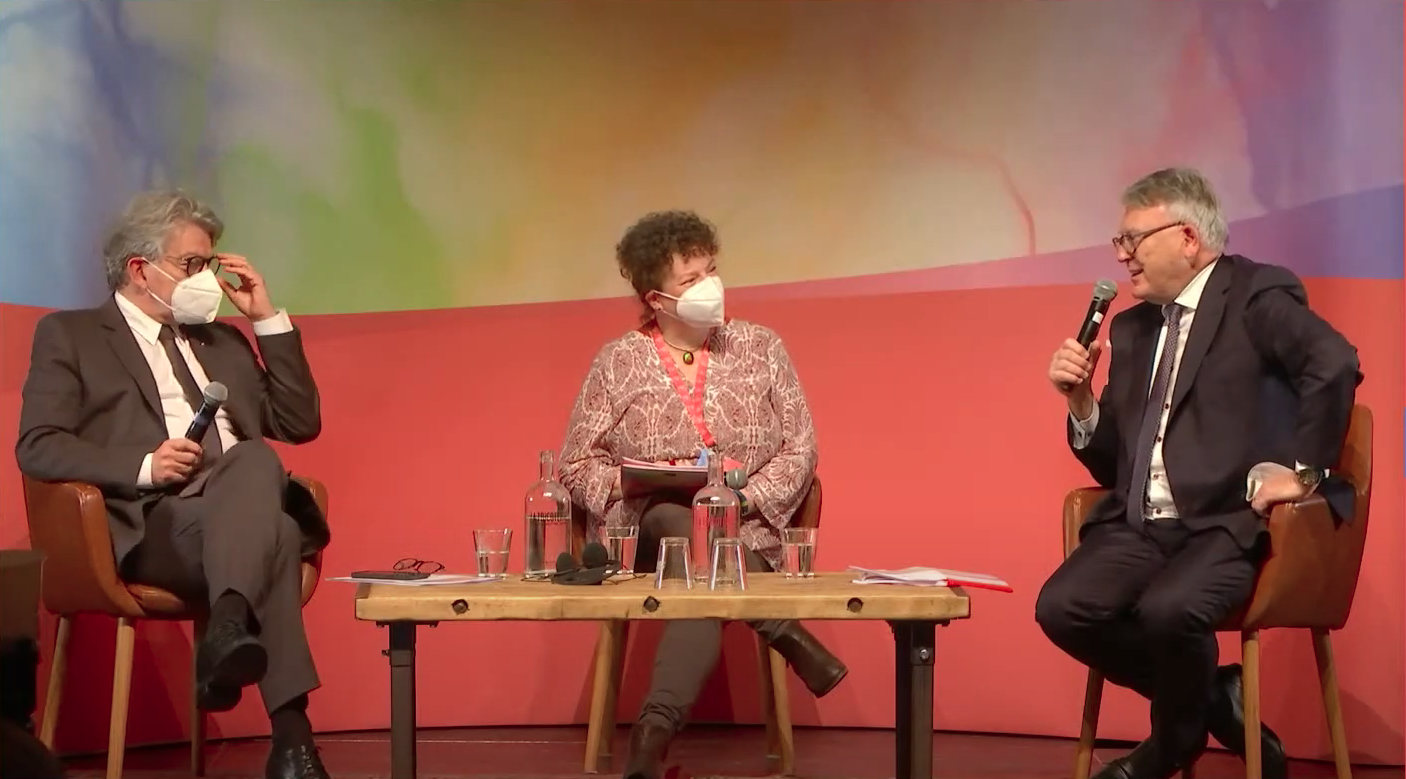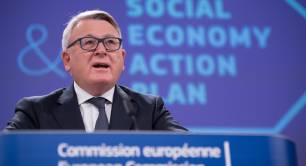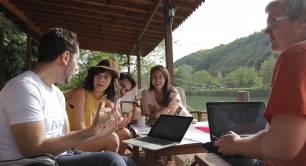EU to create a ‘level playing field’ for social economy entities, commissioner says
EU commissioner Nicolas Schmit said the European Commission would create a “level playing field” for social enterprises across the bloc so they could fully benefit from the advantages of the EU’s internal market.
The commissioner for jobs and social rights was speaking at the launch event of the EU’s Social Economy Action Plan on Thursday in Brussels. The plan sets out proposals to promote the social economy until 2030, and is the EU’s first major policy initiative in this field since the Social Business Initiative of 2011.
Schmit said the action plan was giving the social economy “recognition and visibility” but there was a need to enable social enterprises and associations to grow.
“Very often when [social enterprises] develop, there is a ceiling that they cannot overcome. We have to make sure that the European dimension, the internal market, is there.
“Why should a social economy entity – whether it’s an enterprise or an association – not take advantage of the internal market? It’s important.”
Why should a social economy entity not take advantage of the internal market? It’s important - Nicolas Schmit
Coming soon: a European status?
But to enable social economy organisations to enjoy the perks of the internal market – that is, operate freely across the EU – there needed to be a mutual recognition of what they were across member states, Schmit added.
“When we are talking about the social economy at European level, there is no one-size fits all,” he said. “There is a big diversity that has grown through history, practices, different organisations etc… diversity is part of the social economy at European level.”

Above: at the launch of the EU Social Economy Action Plan on Thursday, from left: Thierry Breton, Tasmin Rose, moderator, and Nicolas Schmit
Diversity made the sector richer, he added, but there was a need to find a way for member states to “recognise each other’s systems”. That required a “mutual recognition” of what the main features of a social economy entity were across member states, to enable them to evaluate which organisations fitted those criteria.
But Schmit stressed that didn’t mean there would be “one harmonised European system of how the social economy should work”. Instead, it was about “creating a level playing field for social enterprises and other social economy entities” in the EU.
A European status for social economy organisations would also solve problems around state aid and access to finance, he added. The commission would work on it and present recommendations next year, Schmit said.
Knitting connections
Commissioner for the internal market Thierry Breton, also speaking at the event, said the social economy was forward-looking and fitted the new generation’s desire to work for a purpose. “The social economy is a fantastic opportunity to do a job with a purpose, to be part of society and of the European project.”
- Read: Only one in five young social entrepreneurs in Europe can live off their ventures, new report shows
He said social economy organisations had a unique role to “knit together social connections”, which had been crucial throughout the Covid-19 crisis in particular, but which would also be core to the “triple transition” that the EU was about to undertake – ecological, digital and economic resilience.
You have the projects. Go! Let’s do it... We will make sure you get the money - Thierry Breton
As part of the recovery plan, member states were given the money to fund this triple transition, Breton said, but they needed projects to invest this money in. “You have the projects,” he told the audience of social entrepreneurs. “Go! Let’s do it... We will make sure you get the money.”
A social business VC fund
Nobel-prize laureate professor Muhammad Yunus, who was speaking at the event via video link, urged European leaders to launch a social business venture capital fund “so that everybody who wants to start their business for the first time can do so”. Yunus said organisations should put forward a business proposal rather than a charity one – so countries could invest the money rather than just donating it.
- Read: Muhammad Yunus – the 'superhuman' generation and social businesses can save us from extinction
Top picture: Thierry Breton, right, and Nicolas Schmit, 2nd from the right, on 6 July 2020 © European Union, 2020
Thanks for reading Pioneers Post. As an entrepreneur or investor yourself, you'll know that producing quality work doesn't come free. We rely on our subscribers to sustain our journalism – so if you think it's worth having an independent, specialist media platform that covers social enterprise stories, please consider subscribing. You'll also be buying social: Pioneers Post is a social enterprise itself, reinvesting all our profits into helping you do good business, better.


